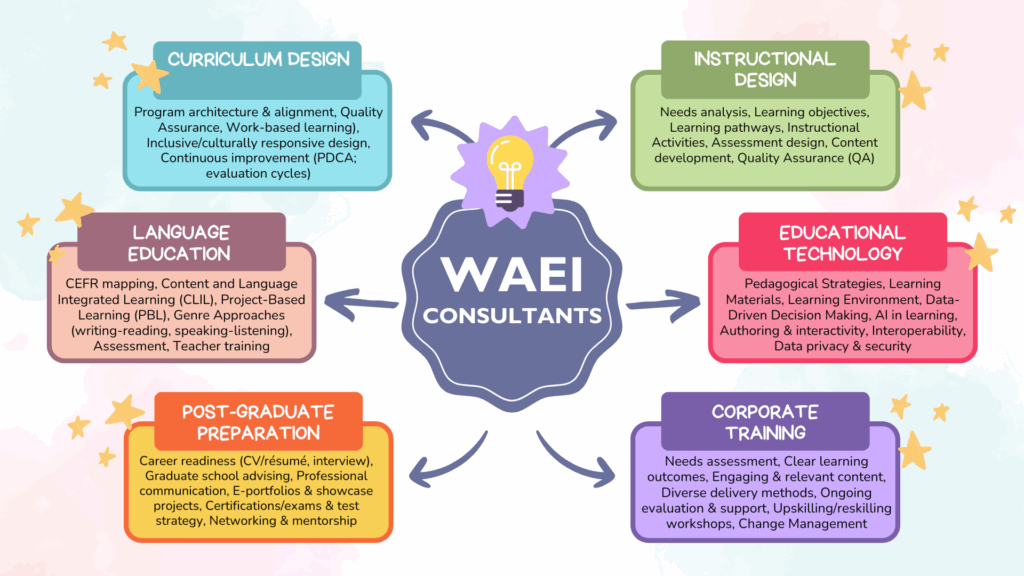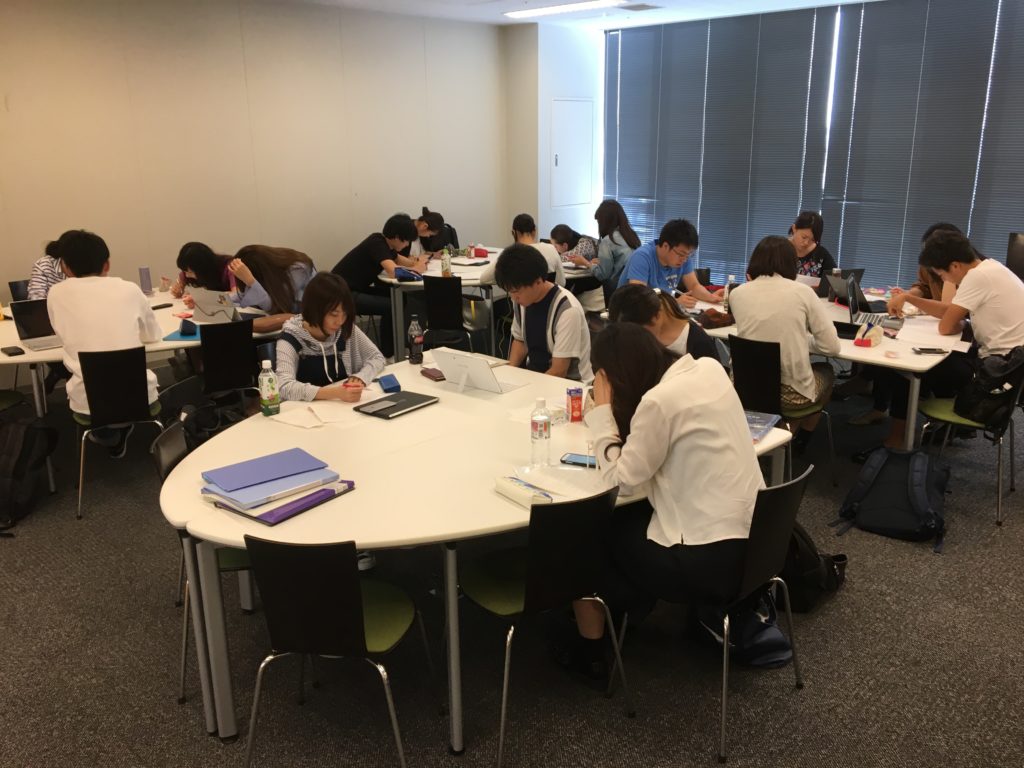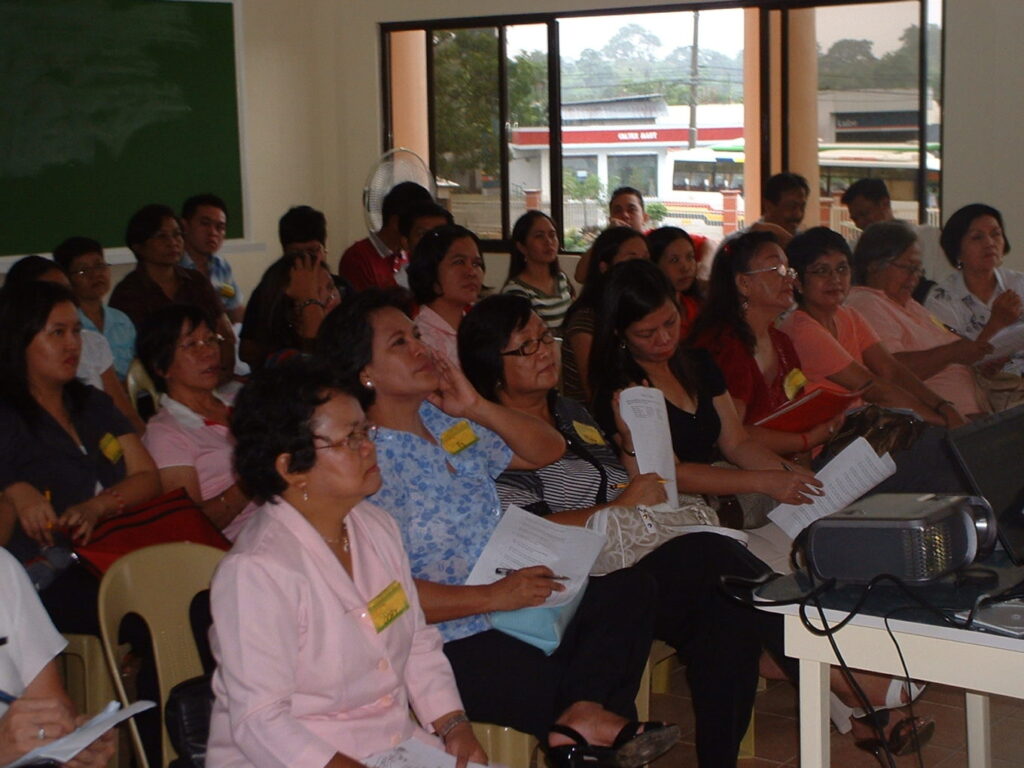Where learning design meets measurable outcomes.
We help institutions, organizations and individuals design effective programs, integrate technology that works, upskill people, and improve learning results.

学習デザインと測定可能な成果が交わる場所
私たちは、機関、組織、個人に対し、効果的なプログラムの設計、機能するテクノロジーの統合、人材のスキル向上、および学習成果の向上を支援します。
What we do
Instructional Design / 教育設計
Needs analysis, Learning objectives, Learning pathways, Instructional Activities, Assessment design, Content development, Quality Assurance (QA)
ニーズ分析、学習目標、学習経路、教育活動、評価設計、コンテンツ開発、品質保証(QA
Educational Technology / 教育技術
Pedagogical Strategies, Learning Materials, Learning Environment, Data-Driven Decision Making, AI in learning, Authoring & interactivity, Interoperability, Data privacy & security
教育戦略、学習教材、学習環境、データ駆動型意思決定、学習におけるAI、作成とインタラクティブ性、相互運用性、データプライバシーとセキュリティ
Corporate Training / 企業研修
Needs assessment, Clear learning outcomes, Engaging & relevant content, Diverse delivery methods, Ongoing evaluation & support, Upskilling/reskilling workshops, Change Management
ニーズ評価、明確な学習成果、魅力的で関連性のあるコンテンツ、多様な配信方法、継続的な評価と支援、スキルアップ/リスキルワークショップ、変更管理
Language Education / 言語教育
CEFR mapping, Content and Language Integrated Learning (CLIL), Project-Based Learning (PBL), Genre Approaches (writing-reading, speaking-listening), Assessment, Teacher training
CEFR対応、内容と言語統合学習(CLIL)、プロジェクトベースドラーニング(PBL)、ジャンルアプローチ(ライティング・リーディング、スピーキング・リスニング)、評価、教師研修
Curriculum Design / カリキュラム設計
Program architecture & alignment, Quality Assurance, Work-based learning), Inclusive/culturally responsive design, Continuous improvement (PDCA; evaluation cycles)
プログラムの構造と整合性、品質保証、職場ベースの学習)、包摂的/文化に配慮した設計、継続的な改善(PDCA;評価サイクル)
Post-graduate Preparation / 大学院進学準備
Career readiness (CV/résumé, interview), Graduate school advising, Professional communication, E-portfolios & showcase projects, Certifications/exams & test strategy, Networking & mentorship
キャリア準備(履歴書/レジュメ、面接)、大学院進学相談、専門的なコミュニケーション、電子ポートフォリオと展示プロジェクト、資格試験とテスト戦略、ネットワーキングとメンターシップ


